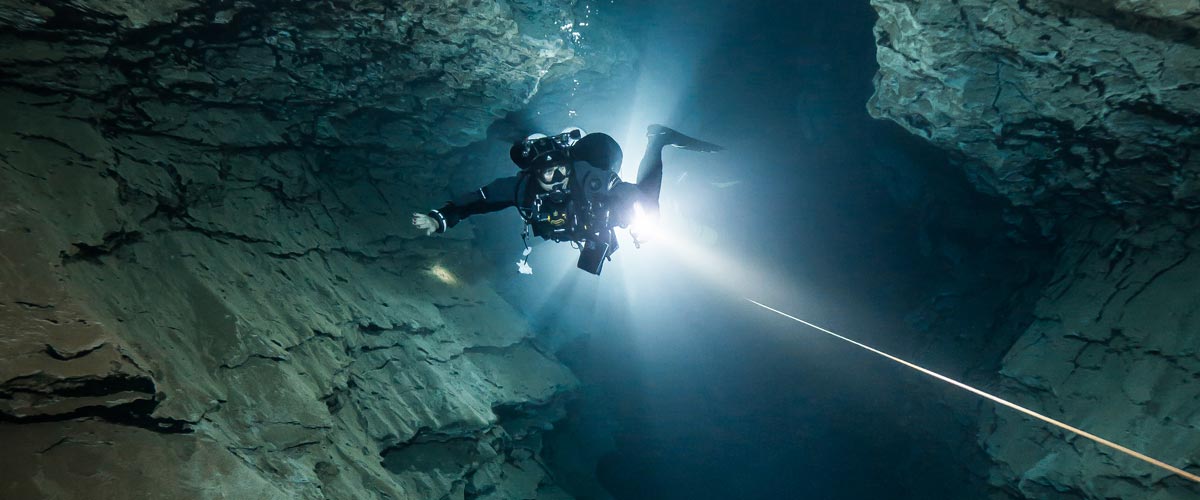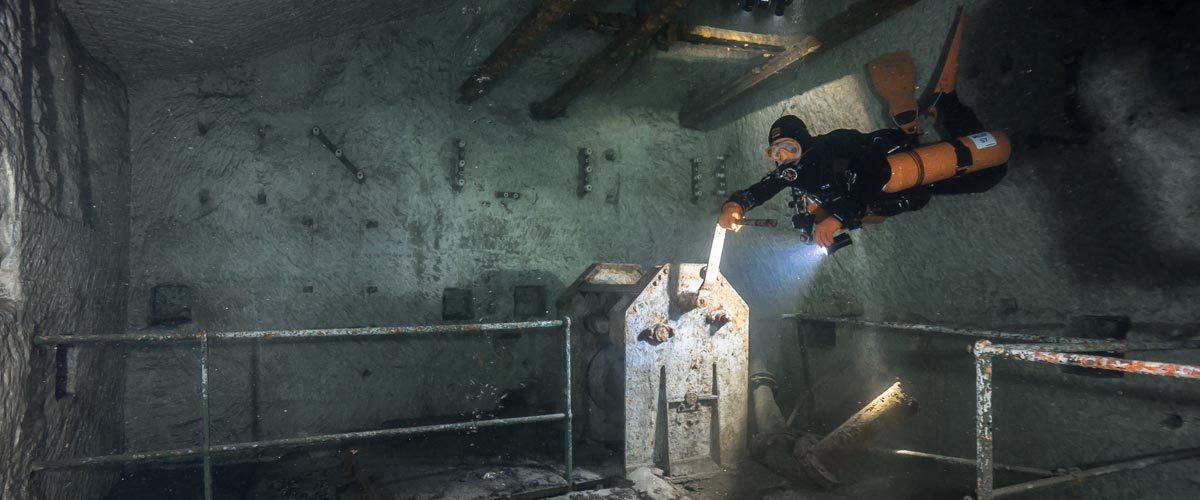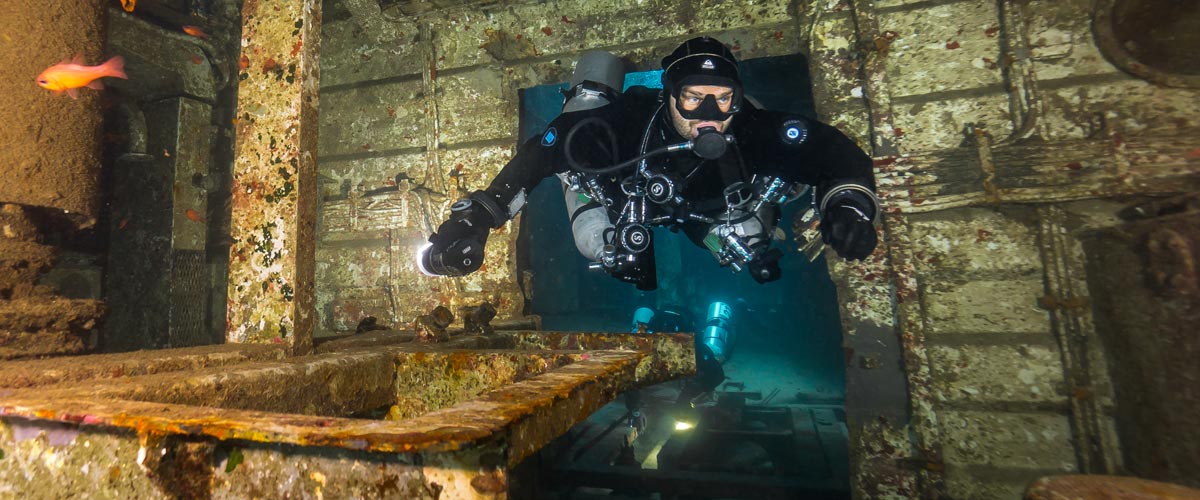Dive Training Blogs
7 Things YOU should know before becoming a PADI Instructor
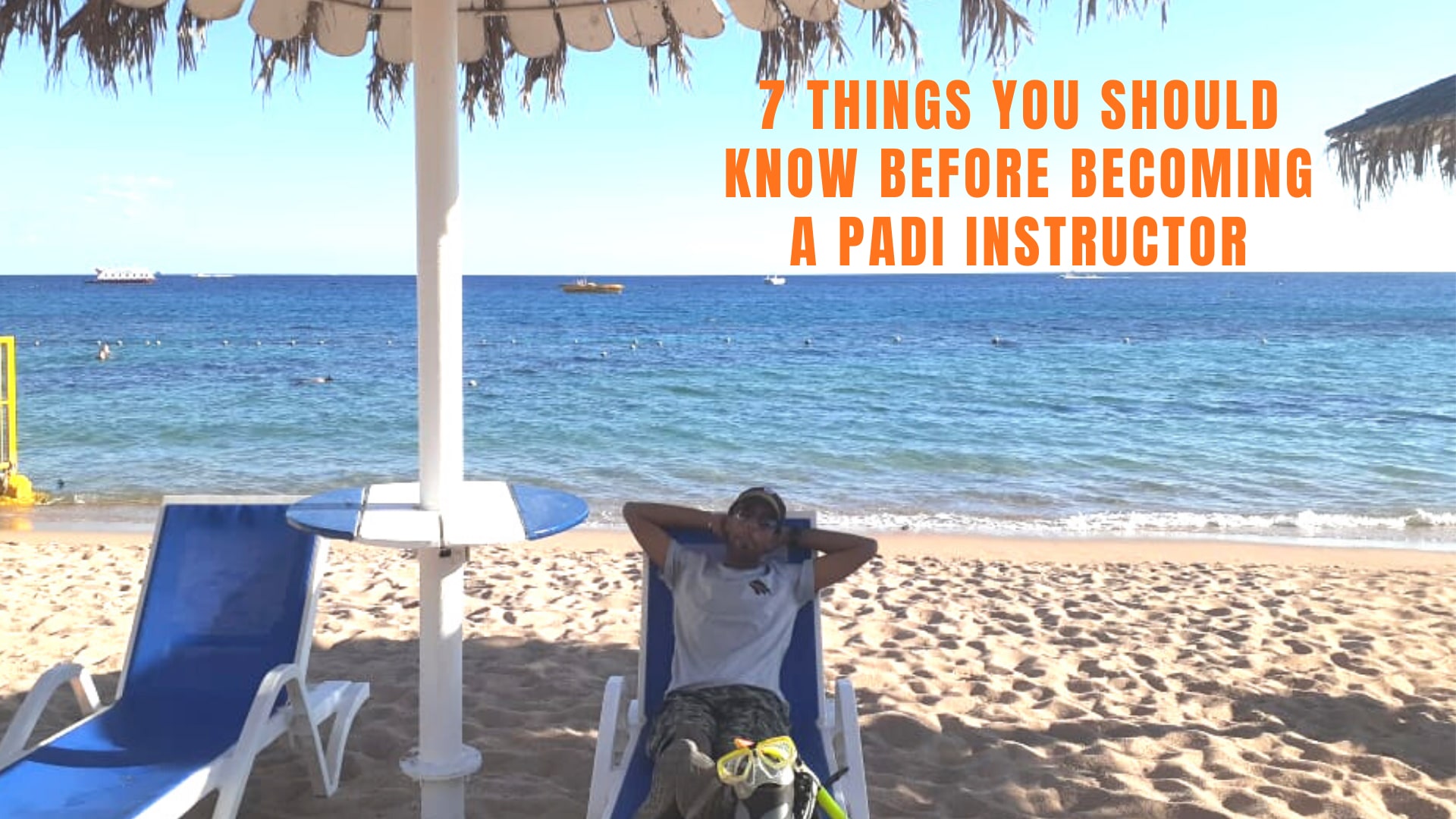
One of favourite bloggers is back!!! Beth is now General Manager at Anthias Divers in Sharm el Sheikh and here she gives the run down on some things you need to know before becoming a Dive Instructor…
Becoming a dive instructor is all about fabulous diving and sunbathing during your surface interval, not to mention all the dates that you get asked out on, or is it?
Let’s take a look at 7 things you should know before taking that first step on to a life changing course, the PADI Instructor Development Course (IDC).
1.You need to be prepared to have friends all over the world and from every culture and career background imaginable.
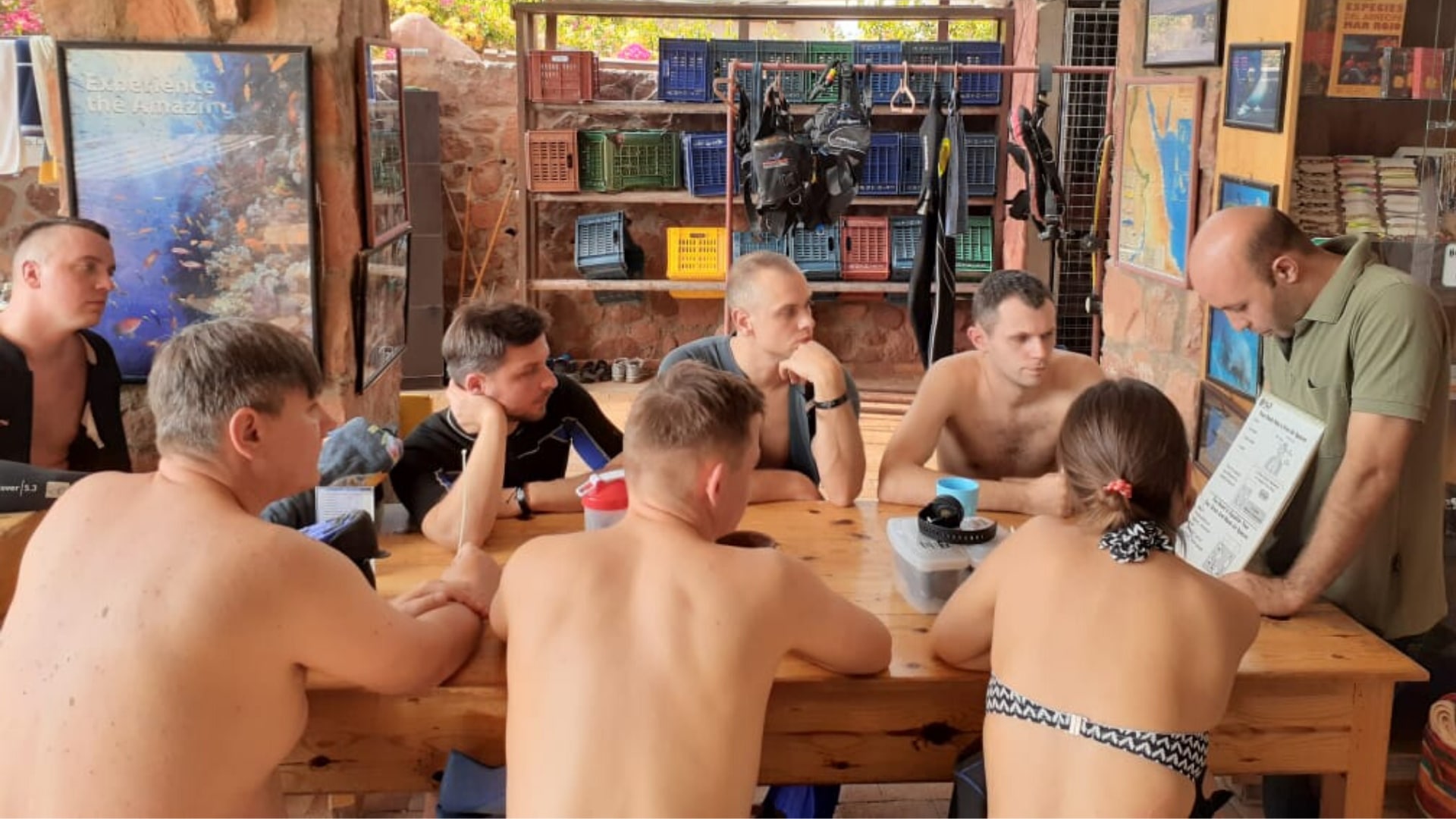
Personally I think, one of the most amazing fortunes that being a PADI Instructor has provided me with, is all the fabulous people that you get to meet. People from such diverse backgrounds, all in one place with one shared passion that unites us all – scuba diving.
2. You will never be bored.
When you think about it, even if you are on a liveaboard where you guide perhaps four dives a day, you will only usually spend a maximum of four hours underwater. So, what do you do with the other six hours of your working day? Usually it will not be used relaxing on sun loungers, contrary to what my family may believe. The time spent not diving can be used up in many ways, some of which include: giving dive briefings to excite your guests about the dive, which in turn excites you and assisting divers to set up their gear whilst helping them find new ways of adjusting their configuration so that it is suitable for them and the type of diving they are doing, amongst millions of other tasks; including counting rubbish that you have collected but that I think, will need to be a separate blog all on its own.
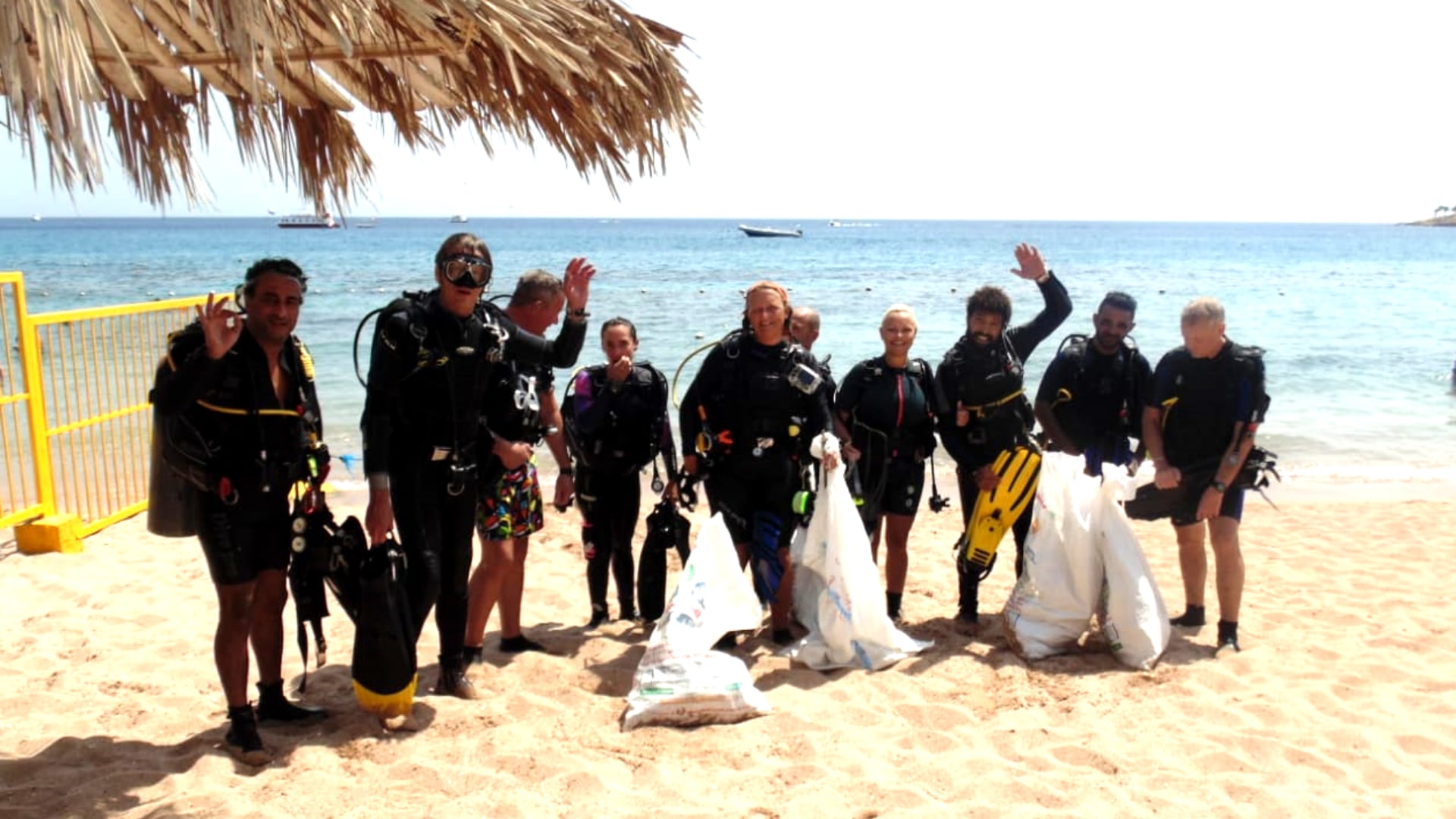
3. You hold a precious, crystal ball in your hands.
Not the kind that helps you see the future, the precious crystal ball you hold is people’s dreams. Many students have dreamt of becoming a scuba diver for much of their lives and it may have taken them a while to find the time or money to do so. This is something that you need to keep in the back of your mind from the minute you meet the guest for the first time, to the very end of the course where you certify that student as a diver. You get to make dreams a reality.
4. You will get tired.
None of us are superhuman, although some of us believed so in our youth. Working as a dive instructor usually involves long hours and few days off during high season. You lose track of days and forget about birthdays (sorry to everyone who I forgot last year). Despite the above, even if you are tired you still need to get up and teach the world to dive but it is easy; to coin a phrase “smile and the world smiles with you” is the best philosophy. If you meet your students with a big smile, they in return smile back and you will find all the energy that you need to teach your students.
5. You need to have a good quality IDC with a patient, thorough PADI Course Director.
Your IDC will be the grounding for your teaching style for years to come, it is also fairly expensive. For these reasons, it is important to receive the best foundation you can.
Shop around for a Course Director that you feel comfortable with and a dive center that you feel can be supportive. For example, PADI IDC 5* center Anthias Divers, Sharm el Sheikh has a great relaxed atmosphere driven by owner and PADI Course Director, James Wilkinson. The whole staff at Anthias is there to provide cups of tea and hugs where required, in addition to a high quality of education to get you on your way to achieving your goal. It is a true team effort.
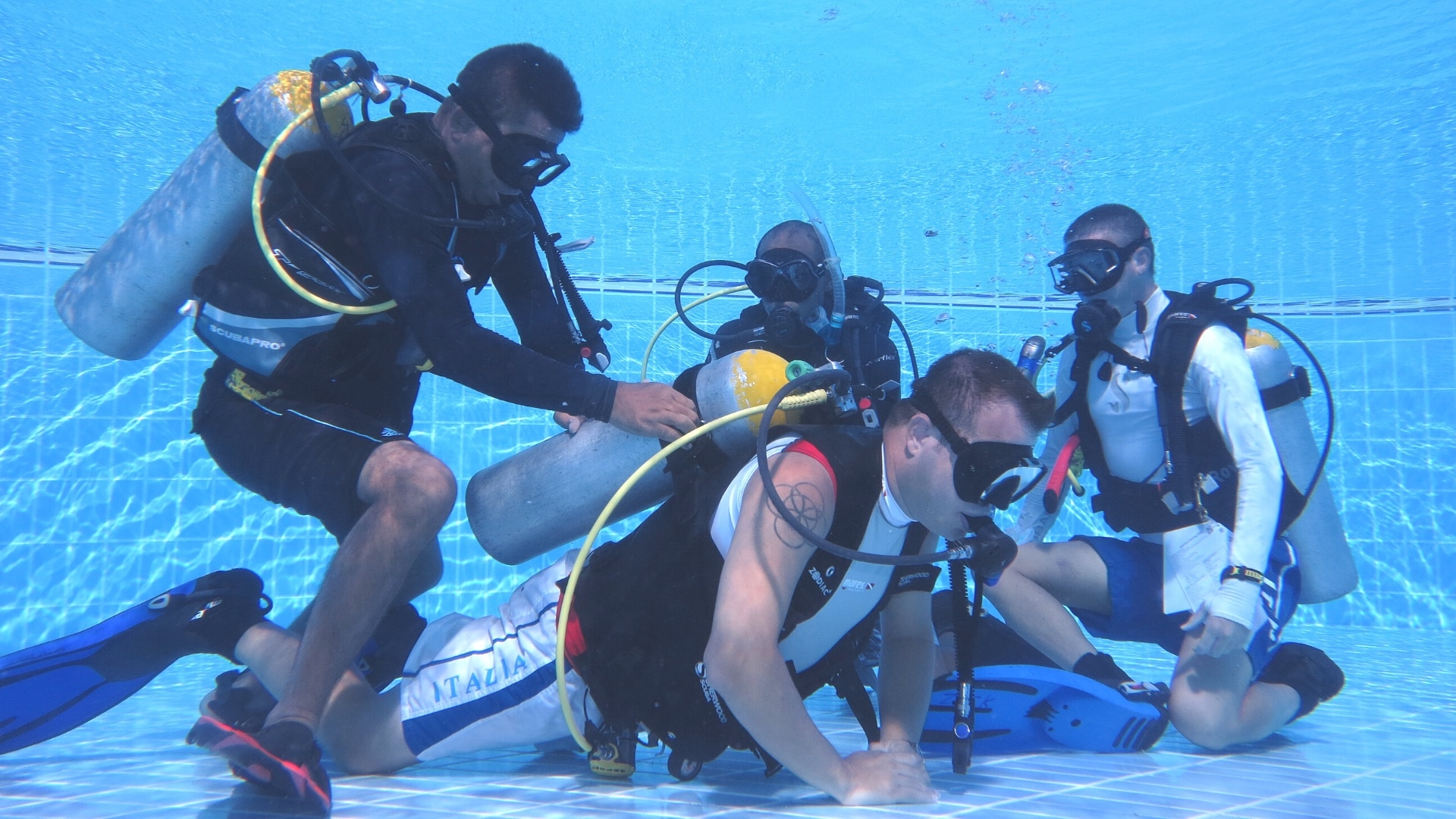
6. You will receive a new passport.
Not a new nationality, but a certification that will allow you to work anywhere in the world that your heart desires. If you join any one of the many social media sites or the PADI pro’s site, you will find many jobs advertised all over the world – from Iceland to Indonesia, the choice is yours.
7. You will get to live your dream.
There are very few people in this life who are lucky enough to say that they are honestly living their dream but if you become a dive instructor, you can be one of the lucky few. There is no feeling better than waking up in the morning and looking forward to go to work and then spending your free time with brilliant people and maybe, even a fun dive or two.
Inspired? Take a look at www.anthiasdivers.com to find out more!
If you’re serious about taking the plunge, Anthias Divers have a PADI IDC running this February! Email info@anthiasdivers.net to book your spot!
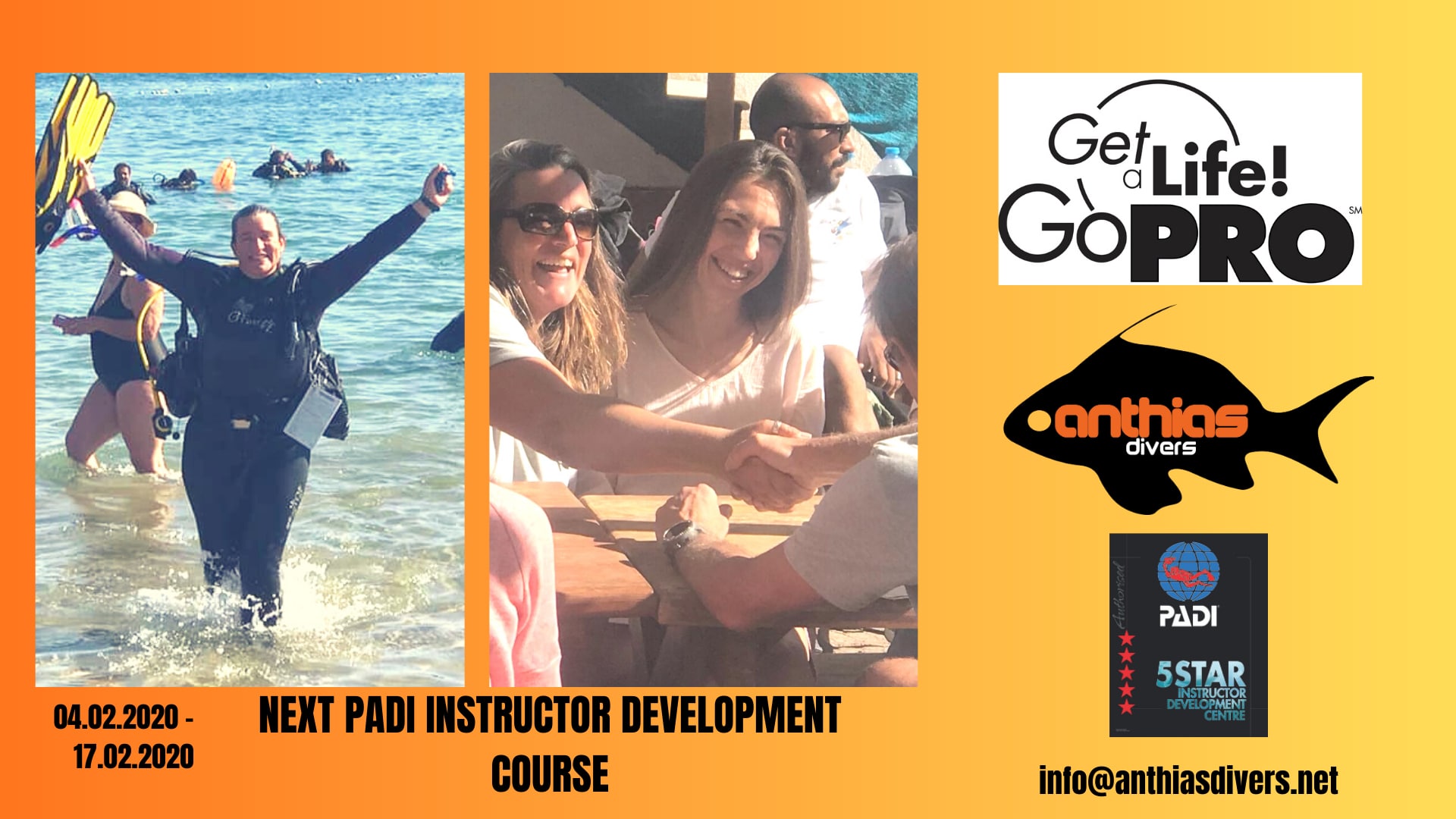
Blogs
Intro to Tech: What is it about?
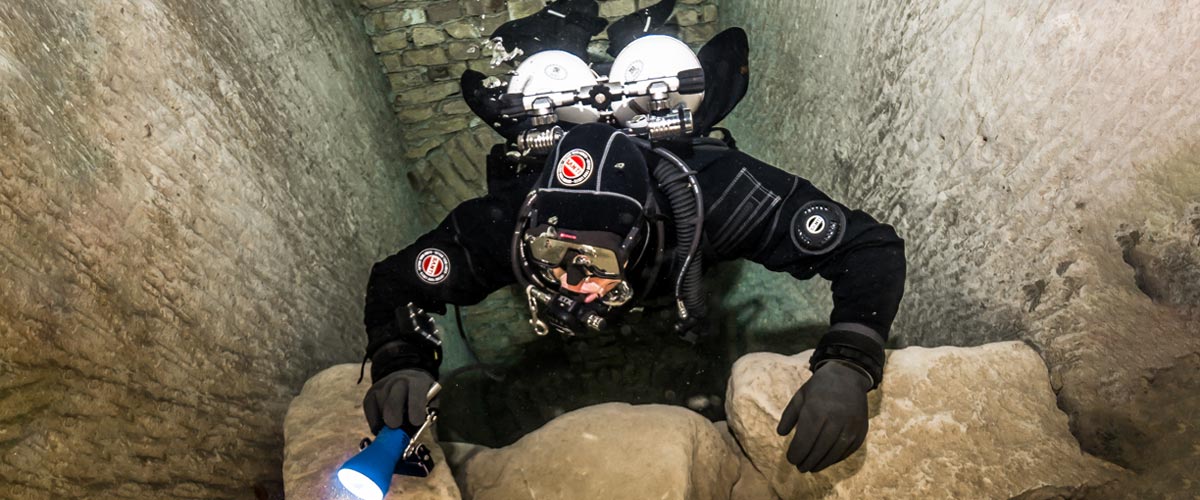
Article by José Pablo Mir
Pictures by Cezary Abramowski
The world of technical diving is exciting. It opens the door to new sites, depths, and bottom times. More importantly, it opens our minds to a new way of planning, facing, and experiencing dives, even those not purely technical.
Becoming a technical diver is a process, and like in other aspects of life, we should find the proper entry point that suits us best based on our knowledge and experience. The Introduction to Technical Diving course from TDI -the world’s largest and most recognized technical diving teaching organization- is the best option for divers who have yet to gain experience in the fundamental aspects of this new practice. The course’s content and its embrace of new techniques and technologies make it possible to acquire a solid foundation to learn and gain experience in this practice properly.
Becoming a technical diver is not something that happens overnight, whether deciding to become one or receiving a certification card stating we are now technical divers. It is a slow process extending farther away than any introductory course. It requires effort and dedication. But it will bring us satisfaction from day one -or two.
It is a matter of mentality
First, we must understand and accept that technical diving, involving greater depths, longer bottom times, exotic gases, virtual or real ceilings, and more, comes with higher levels of risk than the sport diving we have been practicing until now.
Although this discussion usually starts with a warning about risks, as I’ve done in the previous sentence, our practice is not a game of chance.
Technical diving is a rational activity that requires maturity and good judgment, and we will put everything into ensuring that each dive is a successful one -meaning we return from it safe and sound. With this understanding, we will strive to establish a mental attitude more aligned with our practice and its realities.
This new “technical diver” mindset we will develop will lead us to be more cautious in our executions, more analytical in our plans, more rational in our strategies, and more detailed in our procedures.
Experience will keep teaching us to know ourselves better, to keep our anxiety and other emotions under control, and to manage our impulses. Over time, our senses will sharpen, and we will be more attentive to the particulars of the situation we find ourselves in.
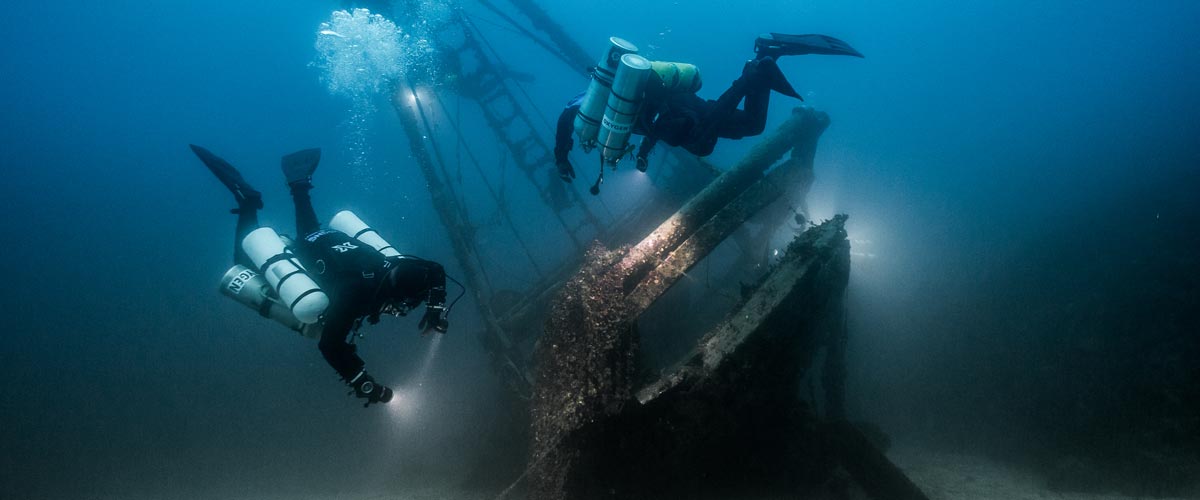
Strategies and procedures
Our strategies, those broad guiding lines tracing the path to follow, from how to approach planning to where, with what, and how we are willing to get there, will be more specific and more practical. Not because they magically become so, but because we will consciously and deliberately frame them that way.
We will establish clear, concise, and realistic procedures. Not only for the undesirable situations that may present themselves but also for those that are part of our dive objectives.
Even though, as technical divers, we often use equipment different from what we were previously accustomed to, it is essential to note that the gear does not make the diver. In a way, we could consider such equipment as the necessary tools to implement what our goal seeks to achieve, according to our strategies and procedures.
Technique plays an important role
We must put our greatest effort into learning and perfecting the different techniques we will be acquiring. Buoyancy, trim, propulsion, cylinder handling, deploying DSMBs and lift bags, valve drills, and more are essential skills we must begin to master to progress in our art. What we cannot do, when we need to do it, can harm us.
Our techniques must be effective and achieve the purpose for which they were devised. But they must also be efficient and require the least resources possible, including the time they take and the effort they demand. Effectiveness and efficiency will prevail over beauty and other considerations that may come to mind, although none of them should be mutually exclusive. A technique executed efficiently and effectively tends to have an inherent beauty.
Refining techniques is a lifelong mission. Some of them will be easy to master from the go; others, on the other hand, will be our life mission and will require many repetitions just to resemble the idea we have in mind of how they should be executed.
We must consider the environment
Our learning, the needs and musts of the practice we engage in, the experience we gradually gain, our strategies and procedures, and even our equipment and tools change with the environment.
Diving in the ocean, everything about us must be suitable for ocean dives. Conditions there rarely emulate those found in a pool, lake, or river. Variable winds and currents, greater depths, visibility conditions, other divers with uncertain skills around us, marine life, maritime traffic, distance from the coast, and many other factors add complexity and uncertainty.
It is never necessary to master the pool on the first day, but planning and aspiring to gradually cope with the ocean’s conditions is essential.
The cost of good training
We are aware that our resources are often scarce in relation to the possibilities of use we could give them if they were not. To a greater or lesser extent, we are part of the economic reality in which we are embedded.
Fortunately, the cost of good technical diver training is not an entry barrier. Comparing training and equipment costs, we see that the former are generally lower. Yes, lower cost for personalized service, essential to our future
performance and safety, than for a series of mass-produced products that are mere, albeit necessary, tools for an end.
The value of good training
The value of the training we received encompasses a range of characteristics, from emotional and methodological to technical and technological. TDI and its Introduction to Technical Diving course offer a deep and modern approach, with a teaching strategy that aims to create thinking divers, not merely obedient ones.
As technical divers, our knowledge is our primary tool. In this type of activity, what we don’t know can harm us.
Is this course optional?
Unfortunately, the fact that this Introduction to Technical Diving course is not a prerequisite for any subsequent training is an invitation to consider it optional. And we all know what usually happens to “optional” under budget constraints.
However, this course should be seen as optional only by those divers who are somehow familiar with the use of technical equipment, who have a mindset more in line with the requirements of this type of diving, who plan and execute the dives the proper “technical” way, who know their gas consumption rate, who are not intimidated by non-decompression tables, who feel comfortable using their dive computers, and know the techniques and have at least an acceptable level of buoyancy, positioning, and propulsion. Those can go straight to a more advanced training course, such as TDI’s Advanced Nitrox.
We must ask ourselves whether or not we are in that group.
Remember our goal: to have fun
Recreational diving is our passion. Jumping into the water carrying heavy equipment and having properly dotted our I’s and crossed our T’s have only one ultimate goal: fun. This is the activity we have chosen as a hobby. We must enjoy it; it must give us pleasure and make us vibrate.
Having a good time is not optional!
Blogs
Four opportunities to go pro in 2024 with Dive Friends Bonaire
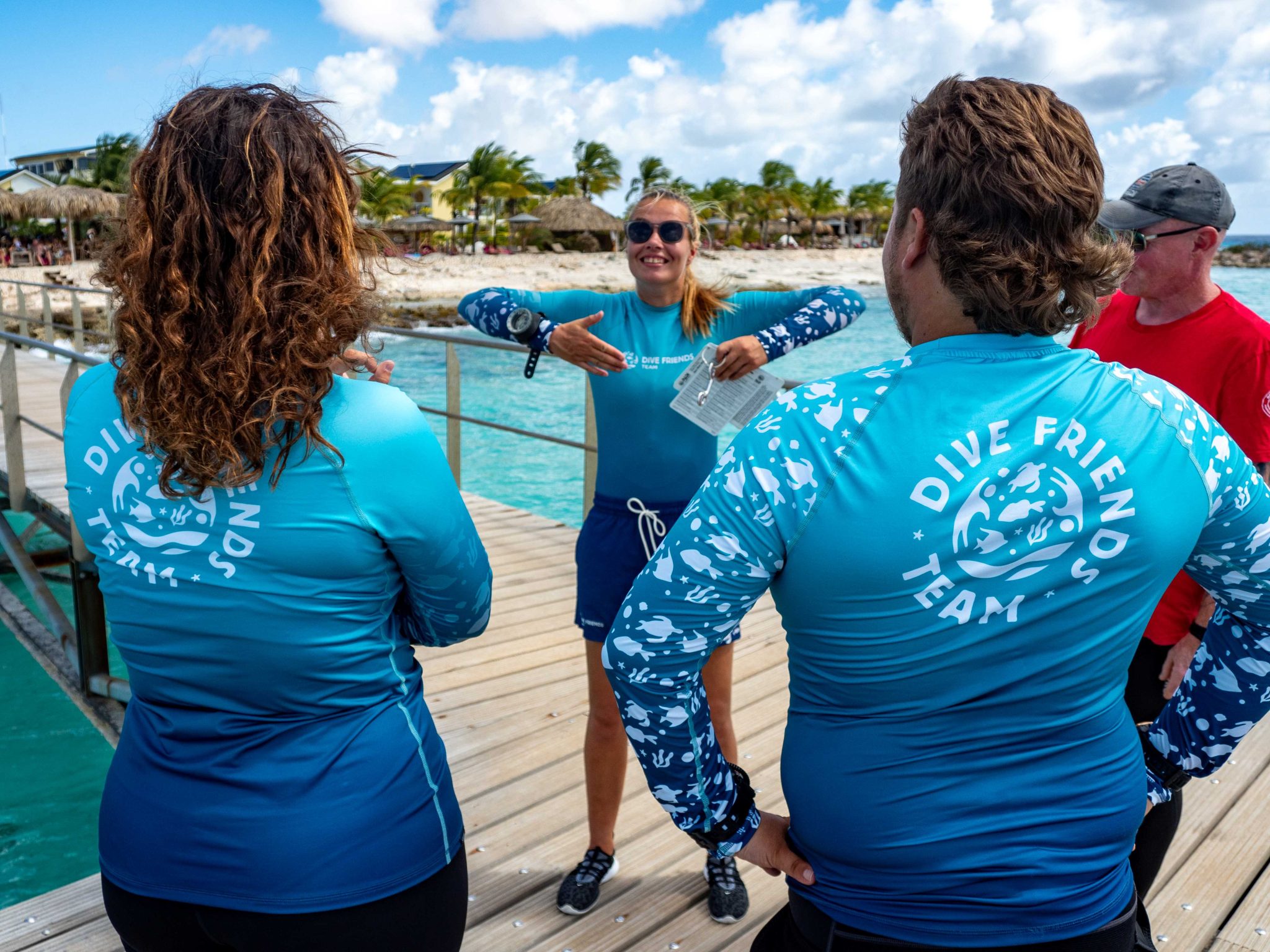
Dive Friends teaches the Instructor Development Course (IDC) several times a year to students who are eager to share their passion for diving with the world.
Dive Friends is known for the personal approach throughout the course. Their in-house course director will lead the students through every essential step, mentoring them to achieve their fullest potential as a dive instructor.
Applications for the following IDC start dates are now open:
- 12 April
- 5 July,
- 20 September
- 29 November
Partnership with Casita Palma
If the student opts for the IDC-Deluxe or IDC-Supreme package, their accommodation will be arranged for them at Casita Palma. This small and quiet resort is within walking distance from Dive Friends Bonaire’s main dive shop location and has everything you need to relax after an intense day of IDC training. Breakfast is included, so the student will always be fuelled and ready for their day.
Contact Dive Friends Bonaire’s Course Director Eddy for more information: coursedirector@divefriendsbonaire.com.
-

 News3 months ago
News3 months agoHone your underwater photography skills with Alphamarine Photography at Red Sea Diving Safari in March
-

 News3 months ago
News3 months agoCapturing Critters in Lembeh Underwater Photography Workshop 2024: Event Roundup
-

 Marine Life & Conservation Blogs3 months ago
Marine Life & Conservation Blogs3 months agoCreature Feature: Swell Sharks
-

 Blogs2 months ago
Blogs2 months agoMurex Resorts: Passport to Paradise!
-

 Blogs2 months ago
Blogs2 months agoDiver Discovering Whale Skeletons Beneath Ice Judged World’s Best Underwater Photograph
-

 Gear Reviews2 weeks ago
Gear Reviews2 weeks agoGEAR REVIEW – Revolutionising Diving Comfort: The Sharkskin T2 Chillproof Suit
-

 Marine Life & Conservation2 months ago
Marine Life & Conservation2 months agoSave the Manatee Club launches brand new webcams at Silver Springs State Park, Florida
-

 Gear Reviews3 months ago
Gear Reviews3 months agoGear Review: Oceanic+ Dive Housing for iPhone















